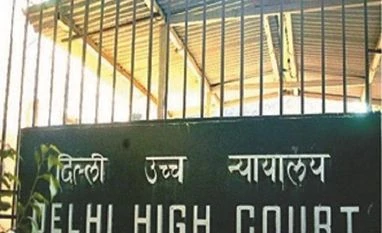The Delhi High Court has ruled in favour of Nokia in a patent infringement suit against Oppo and ordered Oppo to furnish security payment of the India portion of the last-paid licence fee.
Though the amount is confidential, it will be 23% of the amount paid under the 2018 License Agreement. This is because Oppo's India portion is 23% of its global sales
“Keeping in view the status of Oppo as an ex-licensee, its admission that its phones use Nokia‟s patents, its willingness to renew the 2018 Agreement and make interim payments as late as June 2021, the fact that it has approached a Court in China for determining a FRAND (Fair, Reasonable and Non-Discriminatory (FRAND) rate as well as the consistent practice of this Court and the financial condition of Oppo, this Court is of the view that the impugned judgment is contrary to the facts as well as settled principles of law,” the order said.
The issue arises from Nokia’s appeal against an order of November 17 last year dismissing its application. Nokia also sought a direction to Oppo to deposit interim security of an amount based on either the latest counter-offer made by Oppo for a global licence of Nokia‟s portfolio of Standard Essential Patents or of an amount equivalent to the royalty paid under the (2018 Agreement) proportionate to the ratio of the number of devices sold by Oppo in India vis-à-vis the number of devices sold globally.
Nokia claims that Oppo is the world’s second-largest manufacturer of smartphones having overtaken Apple and Oppo’s sales in India account for around 23 per cent of its global sales.
Nokia told the court that Oppo had secured a licence for use of Nokia‟s Standard Essential
More From This Section
Patents in 2018 for a period of three years (expiring on 30th June, 2021) after making a payment under the 2018 Agreement). The said 2018 Agreement was a cross-licence agreement for patents belonging to both parties.
Nokia said that the 2018 Agreement did not include patents relating to the 5G standards and considering that 52 percent of Oppo‟s sales in India and 64 per cent of its global sales consist of 5G devices, any new licence fee would be substantially higher.
Nokia said that after the expiry of the 2018 Agreement, Oppo had witnessed an unprecedented increase in the sale of its devices and during the period between July, 2021 and December, 2022, it sold around 77 million devices in India without paying a single rupee in royalty to Nokia. It claimed that despite its efforts including making itself available for discussions on the technical and economic fronts, Oppo refused to execute a fresh/second licence agreement.
Upon failure of execution of the fresh/second licence agreement between the parties, Nokia moved the Delhi High Court for infringement of its three Standard Essential Patents on the
ground of unlicensed manufacture, sale etc. of cellular devices which comply with 2G, 3G, 4G and 5G telecommunication standards by Oppo.
Nokia contended that sufficient facts and law had been pleaded by it before the learned Single Judge while seeking the protem (for the time being) deposit.
Nokia stated that Oppo had not only admitted to the past licensor-licensee relationship between the parties based on the 2018 Agreement but had also offered to make payments of royalties for a fresh licence. Nokia said Oppo had also filed a case in China seeking fixation of Fair, Reasonable, and Non-Discriminatory(FRAND) rate for Nokia‟s portfolio of Standard Essential Patents.
Meanwhile, Oppo said that bank guarantees have been issued by Oppo in respect of their counter-offers which included a standstill clause for the Non-Standard Essential Patents as well.
“Thus, the bank guarantees should be sufficient security for both proceedings, that is in respect of the Standard Essential Patents and the Non-Standard Essential Patents,” Oppo submitted.
The court however rejected Oppo’s contention. “This Court is of the view that the Oppo FRAND case in China is a prima facie admission that Nokia does own Standard Essential Patents and that Oppo must necessarily license it against FRAND royalty payment,” Justices Manmohan and Saurabh Banerjee said.
The court said that the bank guarantee is encashable only once a FRAND agreement has been concluded and there is a default in payment obligations under the yet to be concluded agreement.
“This Court is in agreement with the contention of the learned senior counsel for Nokia that German bank guarantee is a “smokescreen‟ as it will only come into fruition once a licence agreement has been signed – i.e., it provides no security at all until a licence agreement is entered into, the order said.
The court said that though German Courts have not expressly assessed the sufficiency or adequacy of the bank guarantee, yet insufficiency of the past bank guarantee is evident from the fact that despite a bank guarantee having been furnished, the German Court has found Oppo to be an unwilling licensee and has permanently restrained it from manufacturing and selling its devices in that country.
“It is also interesting to note that pursuant to the order of the German Court, Oppo has chosen to suspend its operations in the German market, rather than take a licence for Nokia‟s Standard Essential Patents. Consequently, this Court is of the prima facie view that Oppo is an unwilling licensee,” the order said.
)